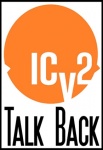 Mark Santillo, Creative Director for Active Imagineering, read Scott Thorne's column on the number of board game releases (see "Rolling for Initiative--The More Things Change...") and had this to say.
Mark Santillo, Creative Director for Active Imagineering, read Scott Thorne's column on the number of board game releases (see "Rolling for Initiative--The More Things Change...") and had this to say.Scott Thorne is right on target with his observation on the correlation between the expansion of new board game releases and similar past gluts in the hobby publishing industry. It doesn't matter that many of these games are coming from a few industry leaders like Rio Grande, AEG and Fantasy Flight. Even without knowing the games in question, I'm going to give Jay Tummelson, John Zinser and Christian Petersen the benefit of the doubt and assume that all of these games are worthy additions to my shelves. Like many consumers, however, I have few spare dollars to spend on new games right now. Even if publishers were to publish one "Dominion"-level game per month, and assuming I bought it, I doubt I would have time to play it or space to store it until I was ready to play. Statistics would indicate, however, that a fair portion of these games must be a waste of the cardboard they're printed on.
So how is a retailer to separate the wheat from the chaff and make reasoned purchasing decisions? I recommend relying upon a few reviewers whose tastes and opinions seem to be in accord with your own, as well as the comments of your customers. Some would be tempted to rely solely upon opinions found at Board Game Geek, but first consider that the BGG audience may not be the same as your store's customer base before making that purchase decision. Ultimately, you are the best judge of your customers' likes and dislikes.
I hope that Scott's column sends a wake-up call to publishers, however, to ratchet down the release schedule to something that both the beleaguered retailer and the cash-strapped public can manage. I like to point to one of the great unsung successes in our industry as my touch-stone: Looney Labs. Looney Labs puts out very few games when compared with other publishers. Yet almost every game they've put out won the Origins award in its category and has remained in print. Looney Labs understands that putting out a few quality games, keeping them in print, and promoting the heck out of them is a viable strategy.
It became clear to me that in the RPG world, publishers were plunging all profits from one product into the next release without spending capital to build an audience; in other words, all production and no marketing. As a result, many excellent RPGs have gone by the wayside for lack of careful marketing. Excellent CCGs like Mythos, On the Edge and Heresy befell the same fate.
In my opinion, the only real solution is to spend considerable capital to grow the number of game players overall; to make playing games socially on par with a night at the movies, a concert or a sporting event. Expand the market and you expand the number of potentially profitable games and publishers. WotC is doing its share, certainly, to increase the number of Magic and D&D players. Why isn't the rest of the industry following suit. This would seem like an appropriate task for, say, an industry trade association to undertake.
So publishers, stop putting out so many new games and start working on getting the games you already have into more hands. If games and game playing were marketed to the public like any other entertainment option,
you'd soon find that you had more orders than you could handle.
The opinions expressed in this article are solely those of the writer, and do not necessarily reflect the vie of the editorial staff of ICv2.com.







